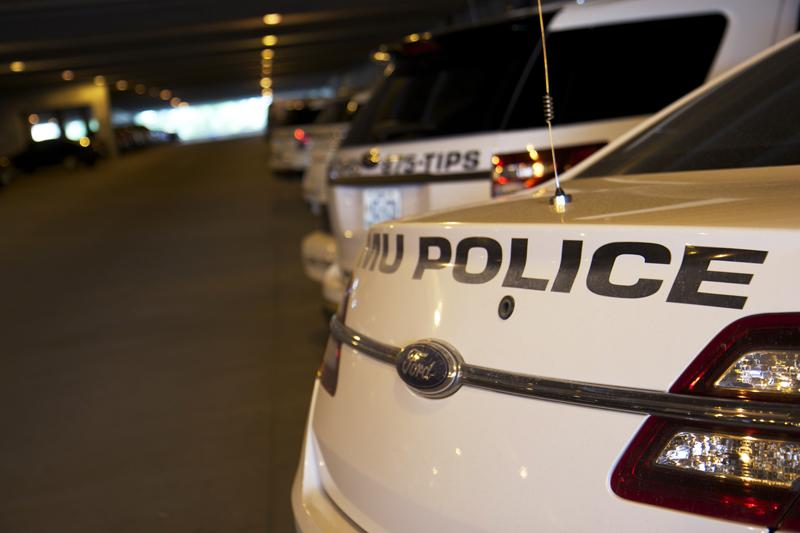Columbia residents are increasingly dissatisfied with the city’s public safety, according to a new survey.
This survey of 811 Columbia residents measured their opinions on and overall satisfaction with city services.
The survey reported 80 percent of residents were satisfied with the city’s services overall. They were least satisfied with Columbia’s utility services, solid waste services and public safety services. They also thought public safety and crime prevention were the most important services for the city to provide.
However, only 58 percent were very satisfied or satisfied with police efforts to prevent crime. In fact, Columbia residents are less satisfied with public safety than the U.S. average.
Only 41 percent reported downtown Columbia as safe or very safe at night, and 19 percent said they felt safe or very safe in city parks at night.
“I feel safe here,” Fifth Ward councilwoman Laura Nauser said at the City Council Regular Meeting on June 17.
She said she believes Columbia is a safe community and the Columbia Police Department and Police Chief Ken Burton are doing the best job they can.
City Manager Mike Matthes said there was a disconnect between the perceived safety and actual crime rates.
“Parks are about the safest place to be in the city,” Matthes said.
Matthes said downtown Columbia was the next safest.
However, CPD’s online crime mapping and analytics show the highest concentration of incidents involving the police occurred between Fifth and Hitt streets from Ash to Locust streets.
Matthes said the city works to prevent crime by reinforcing proven methods to stop criminals and making facts on the crime rate available. He also works with CPD.
“We are absolutely a team,” he said about Chief Burton.
Although he said he cannot tell the press everything he is working on, Matthes said, “The results are on display every day.”
However, most citizens do not have such an in-depth knowledge of what the police are doing to fight crime.
“We know that the vast majority don’t interact with the police,” Matthes said.
Matthes said residents learned about the police from television news and friends, according to a survey. He said that news outlets like ABC 17 have a heavy focus on crime reporting and affect how safe citizens feel.
“Crime all the time makes people feel under siege,” Matthes said.
The press is important, but good days for the city might not always be newsworthy, Matthes said. He said the city would work on reaching out to residents through social media, the city’s channel, website and newsletter.
“We could bypass the press and speak directly to the public,” Matthes said.
At the City Council meeting, Second Ward councilman Michael Trapp addressed city concerns that the council was “naïve” by volunteering to spend time listening to the police scanner.
“I’ll do anything vaguely reasonable,” Trapp said. He said he wanted to find out what the crime “traffic” is like.
Third Ward councilman Karl Skala said, “I think it’s a good idea to keep on top of that and not be naïve.”
Law enforcement agencies work together, and negative comments do not help problems, Skala said. He also recommended using patrols rather than surveillance cameras.
At the City Council Regular Meeting on Monday, Nauser said gangs are a growing problem.
“Until we start to address this problem we’re never going to stop it,” Nauser said.
She suggested increasing efforts to stop graffiti and checking to see how well surveillance cameras are working to deter crime.
The City Council did not seem to have a concrete plan yet to improve resident satisfaction.
“We haven’t had an opportunity to thoroughly discuss the results,” Civic Relations Director Toni Messina said.
Citizens also reported difficulty with finding information from the city, the survey said. Use of Columbia’s cable channel and city newsletter has decreased since 2005, but more residents are using the city’s website for information.
The survey also showed that residents found the city’s cable channel and social network use not useful and ineffective. Satisfaction with city communication decreased overall since 2011.
The city will focus more on social media and the newsletter, but there will also be focus groups to see what citizens are most interested in, Matthes said.
Messina said she was personally surprised at the low levels of satisfaction with city communications. She was the city’s Public Communication Director and had worked to improve levels from the 2011 survey.
“Within the last couple of years we tried to address citizen satisfaction,” Messina said. “We budgeted to add money to do street maintenance. We did a better job in removing snow and keeping people informed though social media. Something else we’re doing to make it easier for people to reach City Hall — at some point we’ll start funneling calls through one number.”
The survey suggested a definite emphasis on improving city streets and public services. However, the satisfaction with the condition of city streets and some other city services improved since 2011.
“It is exciting to see places where citizen satisfaction increased,” Messina said. “It’s, as we like to say, moving the needle in right direction. It makes us feel better.”








